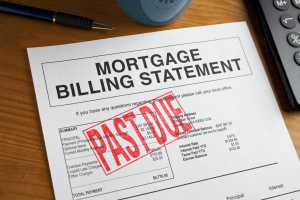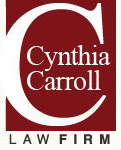 Recently, I met with a homeowner facing foreclosure, who told me “my mortgage company stopped taking my payments”. I’ve heard this complaint countless times during my 23 years of practicing consumer bankruptcy and foreclosure defense law. In this article, I will explain why a mortgage company returns mortgage payments, and what to do about it.
Recently, I met with a homeowner facing foreclosure, who told me “my mortgage company stopped taking my payments”. I’ve heard this complaint countless times during my 23 years of practicing consumer bankruptcy and foreclosure defense law. In this article, I will explain why a mortgage company returns mortgage payments, and what to do about it.
There IS a legal reason that mortgage companies stop taking mortgage payments from homeowners that fall behind. That legal reason is called “waiver”. The simple dictionary definition of waiver is the intentional relinquishment of a known right. But waiver is also a defense to foreclosure. In Delaware, the waiver defense is a plea in avoidance, one of the limited defenses allowed against a writ of scire facias, a Delaware foreclosure action.
Most standard promissory notes and mortgage documents provide that when a homeowner misses even one mortgage payment, the mortgage loan is in default. Once in default, the owner of the note has the right to accelerate, that is, request that the entire loan balance be paid within 30 days, and then foreclose if not paid.
The reason, then, that a mortgage company returns mortgage payments, is to prevent conduct that may later give the homeowner a waiver defense to foreclosure. If a mortgage servicer, the entity that collects the mortgage payments on the noteholder’s behalf, accepts mortgage payments while the loan is in default, the mortgagor/homeowner may allege that by accepting mortgage payments, the mortgagee waived its right to foreclose, and thus should be estopped (prevented) from foreclosing.
So, what, then, should homeowners do when their mortgage company stops taking their mortgage payments? One thing they should NOT do is spend the money that otherwise would have been used to pay the mortgage. Unfortunately, this is exactly what most people do – over 90% of the people facing foreclosure I’ve met spend the mortgage payment money. This really comes back to bite, because the larger the default, the more difficult it will be to save the home.
One of the best things a homeowner can do is SAVE the mortgage payments — put those mortgage payments away in a savings account until the issue is resolved.
For one, saving your money helps substantially in a mortgage foreclosure case. One question I’m often asked by Judges is what the foreclosure defendant did with the past due mortgage money. One client, who decided to fight her mortgage company, was smart enough to save the mortgage money, and fortunately was able to pay all of the back-mortgage payments and reinstate the loan, and thus end the foreclosure action.
Another reason is in the event a Chapter 13 bankruptcy case is necessary to save the home. Chapter 13 is the long-term bankruptcy which requires monthly payments to a bankruptcy trustee. This strategy allows homeowners to catch up on back mortgage payments through a Chapter 13 plan. The maximum plan length is 5 years. If the mortgage back payments, for example, are $20,000, the estimated Chapter 13 plan payments, inclusive of legal fees and trustee commissions, would be approximately $440.00 per month for 60 months. This Chapter 13 plan payment, AND the mortgage payment, must be paid religiously each month during the length of the bankruptcy case. In this example, had the homeowner saved even ½ of the mortgage payments during the foreclosure process, the plan payments could be reduced by over $180 per month, to a more manageable plan payment of $257 per month.
Also, if you save the mortgage money, and later choose to walk away from the house, you will have a nest-egg with which to move and start fresh.
People facing foreclosure often tell me that they used the mortgage money to pay other bills. But they fail to realize that debt from credit cards, personal loans, payday loans, hospital bills, repossession deficiencies and certain old income taxes, may often be eliminated, or discharged in Chapter 7 bankruptcy, which is a “straight bankruptcy”, or short-term liquidation. These unsecured debts may also be discharged in a Chapter 13 bankruptcy. Thus, using mortgage money to pay these bills is not the best use of resources.
So, if the mortgage company refuses to take your payments:
Save the money that would have otherwise gone to make the mortgage payment into a savings account. Then, contact the mortgage company to seek a loss mitigation solution. If you are served with a foreclosure complaint, please do not ignore it — immediately contact a foreclosure or bankruptcy attorney, to discuss your options.
Cynthia L. Carroll, Esquire
Newark, Delaware
www.CynthiaCarrollLaw.com
